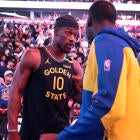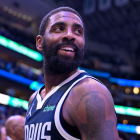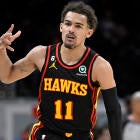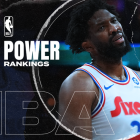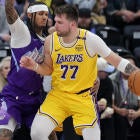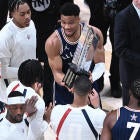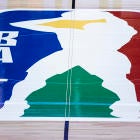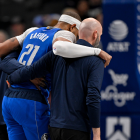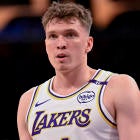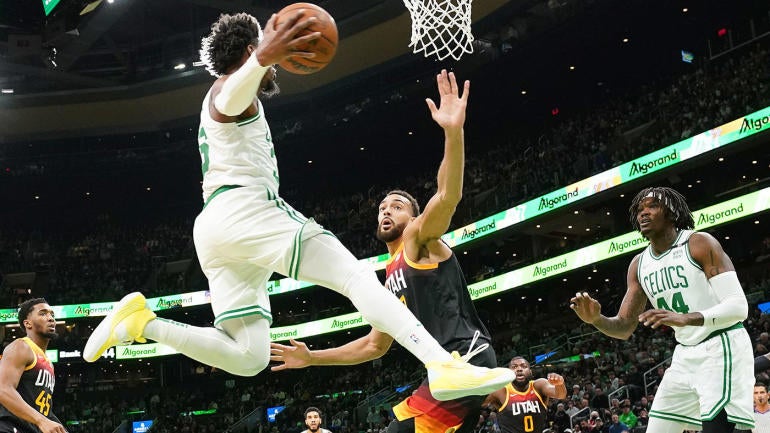
This year's Defensive Player of the Year race is ostensibly about one question -- who has been the best defender in the NBA? -- but making a pick requires engaging with several others. How many missed games is enough to disqualify a candidate? Is on-ball defense as important as off-ball defense? What are individual defensive statistics and team-impact metrics actually telling us? Among the Boston Celtics' many excellent defenders, who is most responsible for them looking invincible for a couple of months?
One philosophical question, though, has become central to the discussion: Bigs or perimeter players?
At one extreme, the argument goes: No matter how sturdy, savvy and switchable a guard might be, he can't affect the game the same way that a dominant rim protector can. Rudy Gobert, a three-time DPOY, doesn't just block shots and change shots, he deters them. Marcus Smart can never anchor a defense and cover for teammates' mistakes the same way Gobert does every night. Perimeter players are technically eligible for the award, but as long as Gobert (or someone like him) exists, they shouldn't be taken seriously.
At the other extreme, the argument goes: Today's game is about versatility, and the winner of this award should reflect that. Gobert is phenomenal at what he does, but the Utah Jazz will continue to fail in the playoffs as long as they keep funneling everything toward him instead of replacing their weak links. Teams with elite pull-up shooters will target Gobert in the pick-and-roll, and teams that play 5-out will simply park the player he's guarding in the corner. Nobody's going at Smart, who is essentially a 6-foot-4 version of Draymond Green, blowing up actions all over the floor. If Green has missed too many games, then this is Smart's year.
Usually, the people having this debate are dorks on the internet. But what if I told you that Gobert and Smart themselves have entered the chat?
Here's Gobert, via ESPN's Tim Bontemps:
"I think small ball impacts who has the most impact on their team," Gobert said before his Jazz faced the Celtics on March 23.
"There's a lot of very good guards, very good defensive guards. ... It can be hard, sometimes, for people to understand, but when I come into the game, I'm worried about the team. I think sometimes we get too focused on the individual matchup."
…
"As a big," Gobert said, "you can impact multiple players at a time. As a guard, it's harder to do that."
And here, from that same story, is Smart's counter-argument:
"Let's think about it," Smart said. "As a guard, especially on the team that switches a lot, especially on the No. 1 defensive team, you are worried about every single player. And here's the thing: When you see Defensive Player of the Year, that means he can guard all five spots.
"Nothing against Rudy, but Rudy can't guard all five spots. I can guard all five spots and I have been doing it. I've done it very well."
...
Said Smart: "I mean, if we're looking at just simple impact, [perimeter players] definitely should be in any kind of conversation when it comes to that award."
My takeaway, as a dork on the internet: All-NBA defenders, they're just like us!
But seriously, if you have a vote for this award, I have a message for you: Please try not to think of Gobert vs. Smart as a grand philosophical choice, if only because framing it as such diminishes both players. Gobert has much more mobility and scheme versatility than the extreme version of this argument would suggest, and Smart's anticipation and communication are just as valuable to Boston's team defense as his ability to pester people at the point of attack.
And if you'd like to split the difference, pick Bam Adebayo.
![[object Object] Logo](https://sportshub.cbsistatic.com/i/2020/04/22/e9ceb731-8b3f-4c60-98fe-090ab66a2997/screen-shot-2020-04-22-at-11-04-56-am.png)









